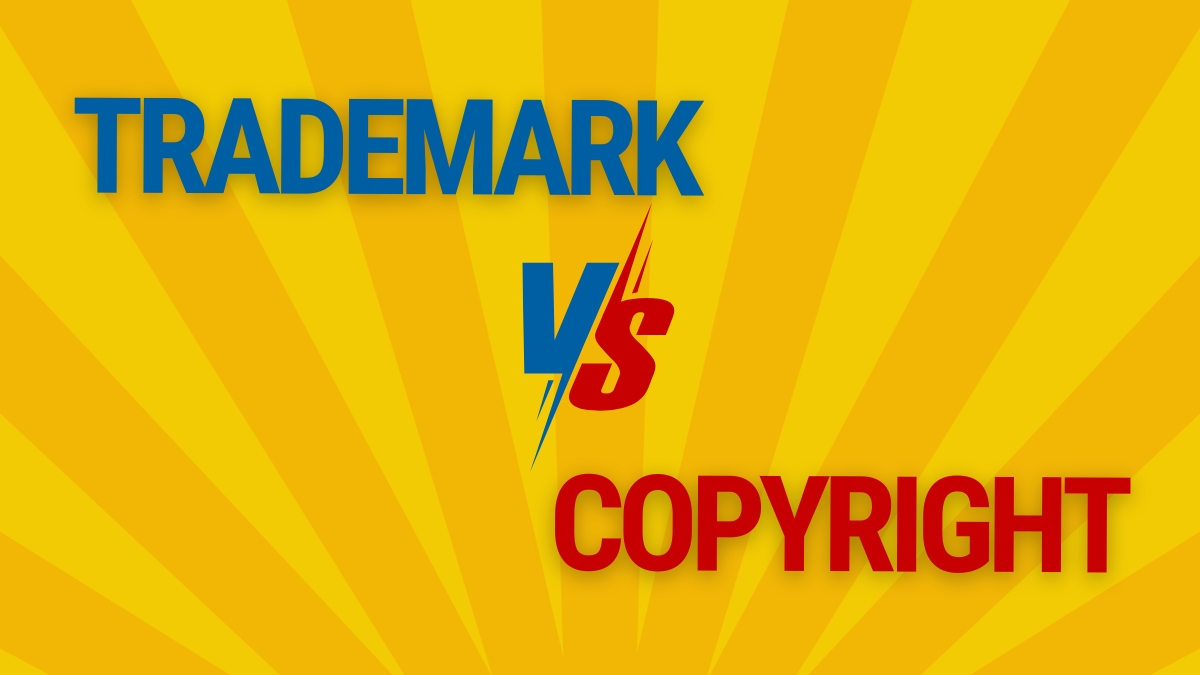What is a Trademark?
In the realm of intellectual property, trademarks and copyrights are two fundamental forms of protection. While both serve to safeguard creations and promote innovation, they are distinct in their purposes, the types of works they protect, and the legal mechanisms involved. This article will elucidate the differences between trademarks and copyrights, helping you understand which form of protection is appropriate for your needs.
A trademark is a symbol, word, phrase, logo, or design that identifies and distinguishes the source of goods or services of one party from those of others. It serves as a brand identifier, ensuring that customers can recognize your products or services in the marketplace.
Key Points About Trademarks:
- Purpose: To protect brand identity and prevent consumer confusion.
- Scope: Covers names, logos, slogans, and other brand-related identifiers.
- Duration: Can last indefinitely, provided the trademark is renewed every ten years and remains in use.
- Legal Protection: Grants exclusive rights to use the mark for specific goods or services and enables the owner to take legal action against infringers.
What is Copyright?
Copyright is a legal right granted to the creator of an original work, such as literary, musical, or artistic pieces, to control the use of their creation. It protects the expression of ideas rather than the ideas themselves, ensuring that creators can benefit from their work.
Key Points About Copyright:
- Purpose: To protect the original expression of ideas and encourage the creation of new works.
- Scope: Covers literary works, music, films, software, artwork, and other creative expressions.
- Duration: Generally lasts for the lifetime of the creator plus 60 years after their death. For corporate works, it typically lasts 60 years from the date of publication.
- Legal Protection: Grants exclusive rights to reproduce, distribute, perform, display, or license the work, and to take legal action against unauthorized use.
Key Differences Between Trademarks and Copyrights
- Nature of Protection:
- Trademarks: Protect brand identifiers that distinguish goods and services.
- Copyrights: Protect original works of authorship, such as books, music, and art.
- Purpose:
- Trademarks: Aim to prevent consumer confusion and protect the reputation of a brand.
- Copyrights: Aim to encourage creativity by granting creators control over the use of their works.
- Duration:
- Trademarks: Can last indefinitely with periodic renewals and continuous use.
- Copyrights: Have a fixed duration, typically the creator’s lifetime plus 60 years, or 60 years from publication for corporate works.
- Registration Process:
- Trademarks: Require registration with the relevant trademark office for full legal protection, although some rights can be acquired through use.
- Copyrights: Automatically arise upon the creation of the work in a tangible form, though registration with the copyright office provides additional legal benefits.
- Scope of Protection:
- Trademarks: Limited to specific goods or services within particular geographic regions.
- Copyrights: Broadly protect against unauthorized use of the work in any form.
When to Use Trademark Protection
- Brand Identity: When you need to protect brand names, logos, slogans, or any identifier associated with your business.
- Consumer Recognition: When your primary goal is to ensure that consumers can distinguish your products or services from others in the market.
When to Use Copyright Protection
- Creative Works: When you need to protect original literary, artistic, musical, or other creative works.
- Control and Monetization: When your primary goal is to control how your works are used, reproduced, or distributed, and to monetize your creative efforts.
Conclusion
Understanding the differences between trademarks and copyrights is essential for protecting your intellectual property effectively. While trademarks safeguard brand identity and prevent consumer confusion, copyrights protect original expressions of ideas and encourage creativity. By knowing when and how to use each form of protection, you can ensure that your business and creative works are adequately safeguarded against infringement. Whether you are a business owner looking to protect your brand or a creator seeking to control the use of your work, choosing the right type of intellectual property protection is crucial for your success.

